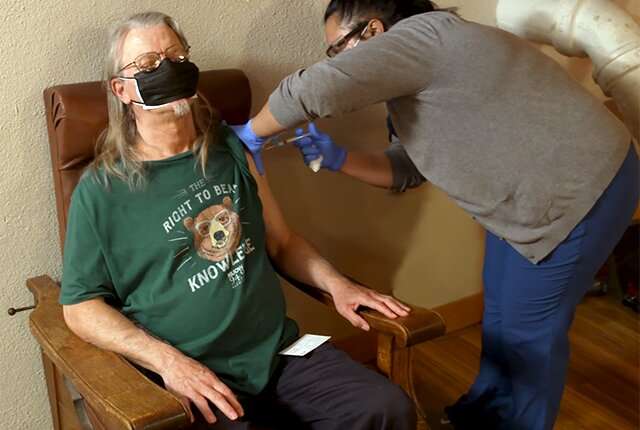Income, zip code affect risk of COVID-19 positive test

Despite high volumes of SARS-CoV-2 tests and the deployment of COVID-19 vaccines, and increased use of electronic health records, little is known about whether the data in those records can predict SARS-CoV-2 test positivity.
A new study examines the influences of sociodemographic and epidemiological features on the spread of COVID-19. The findings were published this month in PLOS ONE.
Research led by the University of Washington analyzed almost 64,000 patients who had at least one clinical visit in the UW Medicine healthcare system between Jan. 1 and Aug. 7, 2020, before receiving a positive result for SARS-CoV-2 via reverse transcription polymerase chain reaction (RT-PCR) test.
The investigators studied patient sociodemographic and clinical features for predictive modeling, accounting for the type of healthcare visit and the information available to indicate patient risks at the time of testing.
Patients' geographic, socioeconomic and demographic factors were relatively stronger predictors of SARS-CoV-2 positivity than individual clinical characteristics.
"We saw a strong geographic correlation between two-week spans when the positivity rate was high in any area and a greater likelihood to have a positive test result," said lead investigator Jimmy Phuong, a Research IT specialist with UW Medicine. "This indicates that one's risk of being detected COVID-positive changes depending on that person's test date and the recent transmissibility in their local environment."
"We also looked at median household income in the patient's ZIP code and the population density in the patient's zip code," he added. "Not surprisingly, we were able to ascertain that higher-income zip-code areas had a lower likelihood of positive test results and lower-income areas had higher likelihood of positive test result, respectively.
The findings from this study were consistent across different visit types, he said. They may offer context to COVID-19 risk factors and how routinely collected health information can inform the deployment of testing, outreach, and population-level prevention efforts.
"This new study can help provide an efficient method of identifying patients with a high probability of newly testing positive, and represents a potential approach to characterizing vulnerable populations," said Phuong, who is also an data scientist for the Harborview Injury Prevention & Research Center (HIPRC).
More information: Jimmy Phuong et al, Sociodemographic and clinical features predictive of SARS-CoV-2 test positivity across healthcare visit-types, PLOS ONE (2021). DOI: 10.1371/journal.pone.0258339



















